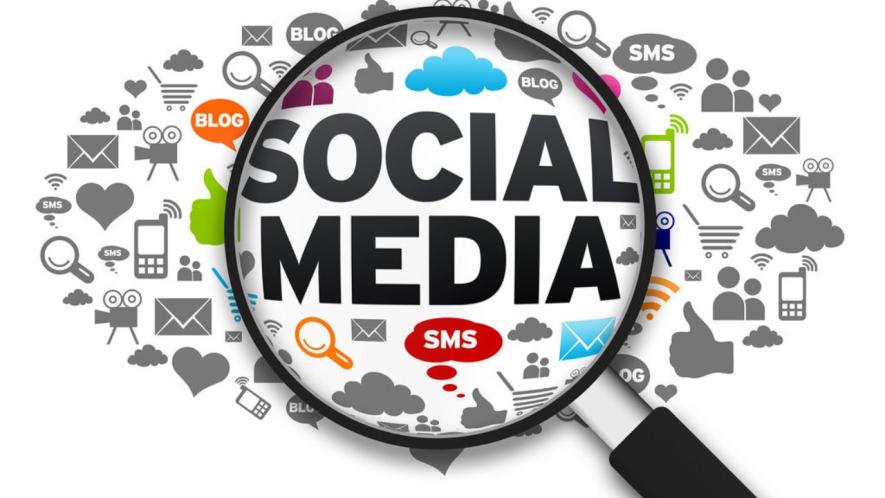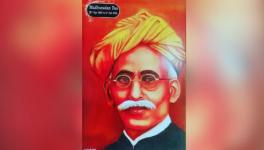Role of Memes in Modern Political Discourse: The Evolution of ‘Pappu’

Representational Image. Image Courtesy: Flickr
The screens through which we consume media reflect our insecurities and the voids in our lives. These platforms, particularly social media, have become spaces where people latch on to fleeting hopes of identity and association. Unfortunately, social media also serves as a battleground for extreme hatred, masked by a facade of privacy. This supposed privacy is compromised by features like shadow banning, leading to polarisation and homogenisation of views. The ideological dominance of the majority shapes popular narratives, instilling fear among those with differing opinions.
Social media's influence on the socio-political discourse has grown significantly, propelled by the viral nature of hashtags and trends. Political parties now leverage digital platforms to propagate memes targeting Opposition leaders, marking a shift from traditional media methods. This evolution signifies a new era in political discourse and propaganda, as the digital realm overtakes traditional media.
The 18th Lok Sabha election highlighted this shift, with Prime Minister Narendra Modi's wave of support diverging from traditional voting patterns. This raises questions about the role of social media and memes in contributing to this change.
Memes have become a new tool in political discourse, engaging the younger generation through humour and visual appeal. However, their engagement often remains superficial, focusing on personal attacks rather than addressing deep-seated ideologies or complex political issues.
The Creation of ‘Pappu’: A Case Study
One of the most striking examples of this new era of political discourse is the creation and evolution of the ‘Pappu’ meme, targeting Rahul Gandhi, a prominent leader of the Indian National Congress. The term ‘Pappu’ is a colloquial, mildly derogatory term in Hindi, implying someone who is naive or foolish. This label was first prominently attached to Rahul Gandhi during the 2014 general election campaign and has evolved significantly since then.
The use of ‘Pappu’ as a political tool began with the ruling Bharatiya Janata Party (BJP) and its supporters portraying Rahul Gandhi as inexperienced and ineffectual. The term quickly gained traction on social media, with memes and jokes proliferating across platforms, such as Facebook, X (formerly Twitter) and WhatsApp. These memes often depicted Gandhi in unflattering, humorous contexts, but the underlying intent was to undermine his political credibility.
However, the narrative took a darker turn as it progressed. What began as seemingly harmless humour soon morphed into a tool for spreading fake news and below-the-belt remarks. For instance, during the 2014 and 2019 elections, several false claims about Gandhi were widely circulated. One such instance involved a doctored video that appeared to show him making a series of gaffes during speeches. Another false claim suggested he had a secret British citizenship, a rumour that was debunked but nonetheless damaged his reputation.
These fake news stories were not mere accidents but strategic tools designed to erode public trust in Gandhi. The memes and posts often carried a tone of disdain and ridicule, steering public perception from laughter to contempt. The ‘Pappu’ label thus transformed into a symbol of hatred, rather than just a joke, contributing to a highly polarised political environment.
Criticism Loop
Historically, political criticism was confined to traditional media, such as speeches and press conferences. One of the earliest examples of political satire was Charles Philipon's caricature of King Louis Philippe as a pear, published in La Caricature. This initiated free journalism and political criticism. Similarly, the cartoon of Gaya Lal, an MLA from Haryana, highlighted the misuse of the turncoat policy, leading to the implementation of Presidential rule in Haryana and the anti-defection law in 1985.
Today, social media platforms have democratised political satire. Leaders themselves engage in meme creation and digital campaigns, a trend that gained momentum around 2019. Notable BJP leaders started creating memes to shape popular narratives. In 2024, Instagram users openly supported Modi's party with hashtags like #ModiKaParivar, contributing to the negative reputation of certain leaders. Instagram has become a battleground for meme wars, with political parties using pop culture references to connect with young voters.
While cartoons created by media houses or individual artists traditionally expose discrepancies between promises and outcomes, memes focus more on personal attacks. These curated images are often short-lived. For instance, the image of Rahul Gandhi as ‘Pappu’ did not persist in the recent elections, and criticism against Modi, once unimaginable on social media, also emerged.
Social interactions on these platforms lead to social scripts, where individuals follow pre-set notions and norms. Gustave Le Bon's contagion theory explains the hypnotic effect a crowd can have on individuals, spreading views instantly without a sense of responsibility. In Delhi, an intellectual hub, memes serve as reference points in daily conversations. Despite shifts in meme page preferences, core ideologies formed through social interactions remain intact.
Memes, while entertaining and engaging, provide a less graceful method for politicians to challenge each other. The influence of social media and memes on modern politics is undeniable, yet their impact on electoral outcomes is complex and multifaceted. They reflect broader societal trends in communication and engagement, raising critical questions about democratic discourse and the role of digital platforms in shaping public opinion.
Identity plays a crucial role in shaping user behaviour on social media. Individuals, driven by insecurities, latch onto content that resonates with their identities and trends. This homogenisation impacts the preservation of individual identity and thought.
Social media creates a mass society where individuals feel detached while being part of a larger group, which can have harmful effects. Memes and posts feed into algorithms, reinforcing preconceived notions with a large support base. This environment rarely generates new opinions or changes ideologies.
As political strategies evolve in the digital age, the challenge lies in harnessing social media's potential for constructive dialogue while preventing its misuse for polarising agendas and misinformation campaigns.
The writer has completed her Bachelor’s in History from Gargi College, Delhi University. She is an independent journalist, navigating her way into the intricacies of society through literature and satire. The views are personal.
Get the latest reports & analysis with people's perspective on Protests, movements & deep analytical videos, discussions of the current affairs in your Telegram app. Subscribe to NewsClick's Telegram channel & get Real-Time updates on stories, as they get published on our website.
























